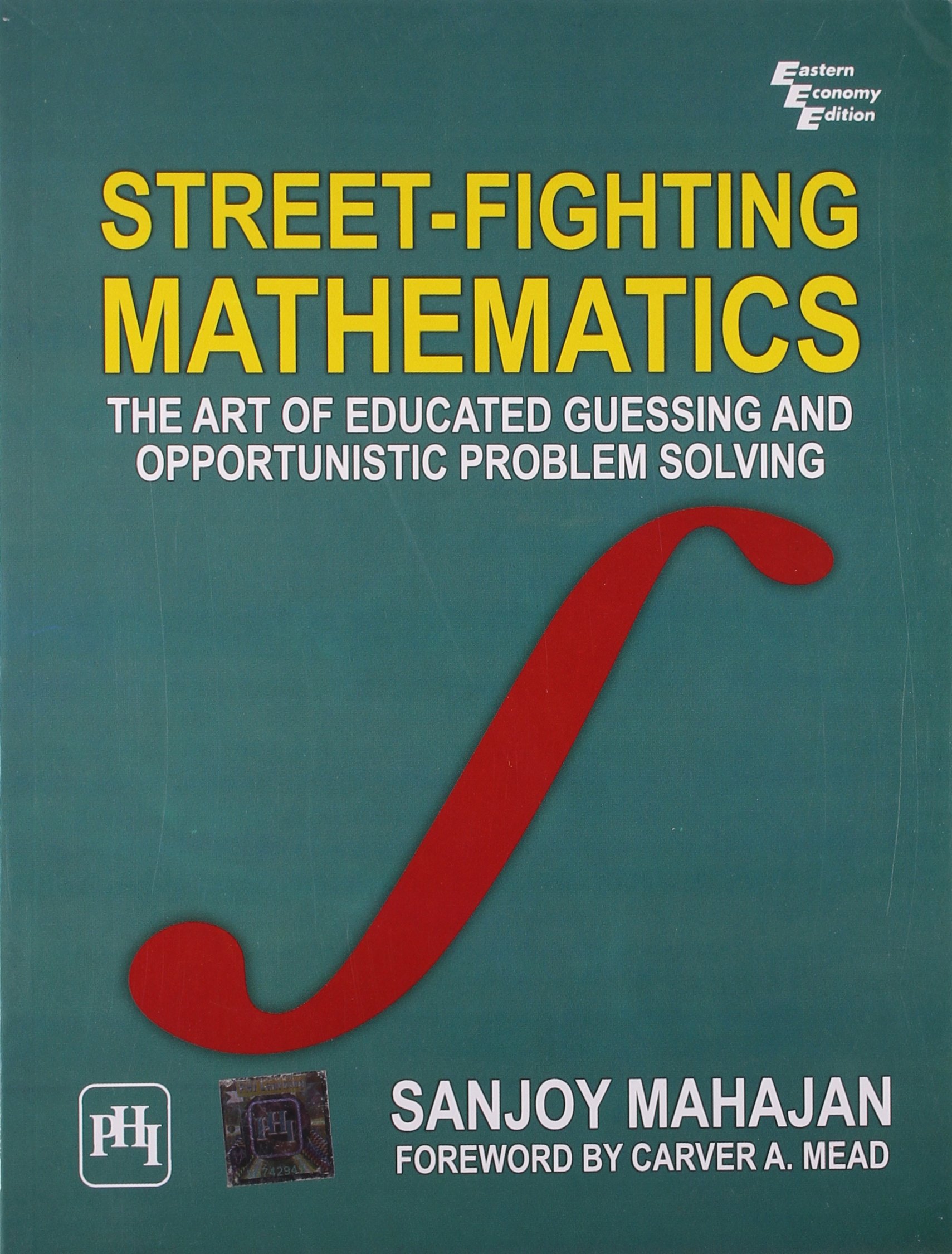
Street-Fighting Mathematics: The Art of Educated Guessing and Opportunistic Problem Solving
A short, intense book on math. I didn’t understand quite a few of the physics examples in here, but there were a few things that can be applied to non-mathetical domains:
- Mind your dimensions: every term in a comparison must have identical dimensions.
- Use easy cases (simple scenarios) to test the validity of models or guess formulas by constructing the underlying framework that passes all easy-case tests.
- Lumping: Instead of dividing something into fine intervals, lump everything into one unchanging whole and make approximations from there.
- Pictorial proofs: Use pictorial reasoning to understand and see large ideas at a glance.
- Taking out the big part: Divide problems into a big part (the most important effect) and a correction. Analyse the big part first, worry about the correction afterward.
- Analogy: When faced with a difficult problem, construct a solve a similar but simpler problem. That was the general learning pointer. I totally did not understand this section.